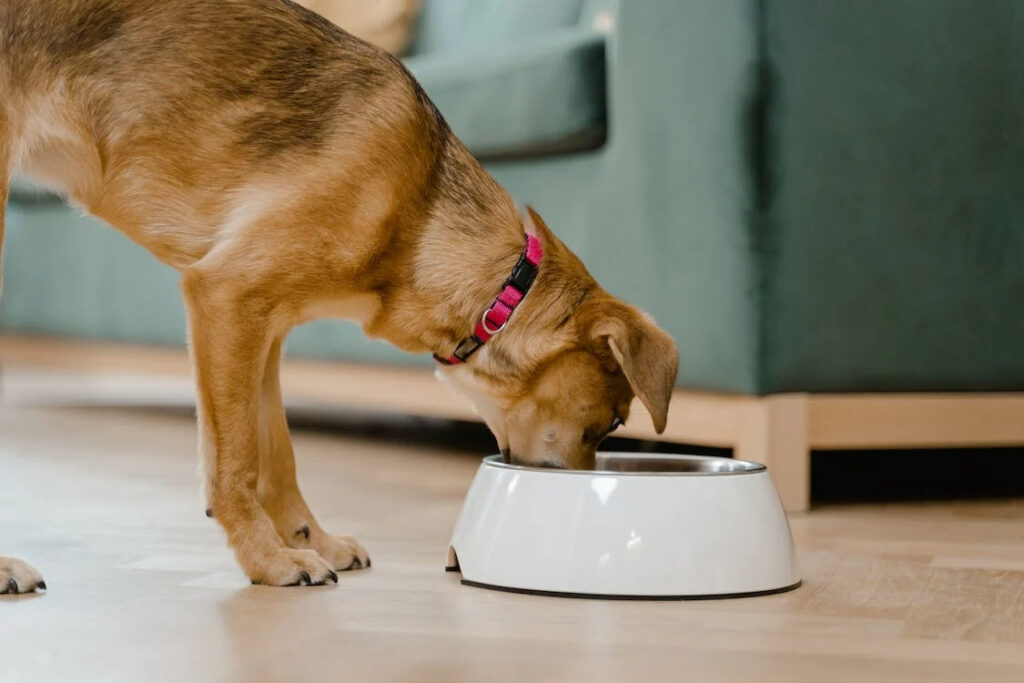Introduction to Dog Digestion
As pet owners, it is important to understand the digestive system of our furry friends. Proper digestion is essential for a dog’s overall health and well-being. However, many pet owners have questions about their dog’s digestion, such as how long it takes for food to be digested and what factors can affect digestion. In this article, we will explore the digestive system of dogs, factors that can affect digestion time, types of dog food and digestion time, the role of enzymes in digestion, common digestive problems in dogs, signs of digestive issues, tips for improving digestion, and how to monitor your dog’s digestion time.

The Digestive System of Dogs
The digestive system of dogs is similar to that of humans, consisting of the mouth, esophagus, stomach, small intestine, large intestine, rectum, and anus. The mouth is where digestion begins, as dogs use their teeth to break down food and their saliva to moisten it. The esophagus is a muscular tube that connects the mouth to the stomach, where food is further broken down by stomach acid and enzymes. The small intestine is where most of the nutrients from food are absorbed into the bloodstream, while the large intestine absorbs water and electrolytes and forms feces. The rectum stores feces until it is eliminated through the anus.
Factors Affecting Digestion Time in Dogs
Several factors can affect digestion time in dogs, including age, breed, size, activity level, metabolism, health conditions, and medications. Puppies and senior dogs may have slower digestion times than adult dogs, while larger breeds may have slower digestion times than smaller breeds. Dogs that are more active or have faster metabolisms may digest food more quickly than sedentary dogs or those with slower metabolisms. Health conditions such as gastrointestinal disorders or pancreatic insufficiency can also affect digestion time, as can medications such as antibiotics or painkillers.
Types of Dog Food and Digestion Time
The type of dog food can also affect digestion time. Dry kibble is the most common type of dog food and is generally easy to digest, with a digestion time of 8-10 hours. Wet food, which contains more moisture, may be easier to digest for dogs with dental issues or those who do not drink enough water, with a digestion time of 4-6 hours. Raw food diets, which consist of uncooked meat, bones, and vegetables, may be more difficult to digest and have a longer digestion time of 12-24 hours. Homemade diets, which can vary widely in composition, may also have varying digestion times depending on the ingredients used.
The Role of Enzymes in Dog Digestion
Enzymes are proteins that help break down food into smaller molecules that can be absorbed by the body. Dogs produce their own digestive enzymes, but enzyme supplements can also be used to aid in digestion. There are several types of enzymes, including proteases, which break down proteins; lipases, which break down fats; and amylases, which break down carbohydrates. Enzyme supplements can be particularly helpful for dogs with pancreatic insufficiency or other digestive disorders.
Common Digestive Problems in Dogs
Digestive problems are common in dogs and can include diarrhea, constipation, vomiting, and bloating. Diarrhea can be caused by a variety of factors, including dietary changes, infections, or parasites. Constipation can be caused by dehydration, lack of fiber in the diet, or certain medications. Vomiting can be caused by a variety of factors, including dietary indiscretion, infections, or gastrointestinal disorders. Bloating, which is characterized by a distended abdomen, can be caused by a buildup of gas in the digestive tract.
Signs of Digestive Issues in Dogs
Signs of digestive issues in dogs can include changes in appetite, changes in stool, lethargy, and discomfort. Dogs with digestive problems may refuse to eat or may eat less than usual. Changes in stool can include diarrhea, constipation, or abnormal color or consistency. Lethargy and discomfort can be signs of pain or discomfort in the digestive tract.
Tips for Improving Dog Digestion
There are several tips that pet owners can follow to improve their dog’s digestion. Slow feeding, which involves feeding smaller meals more frequently, can help prevent overeating and aid in digestion. Probiotics and prebiotics can also be helpful in promoting healthy digestion by supporting the growth of beneficial bacteria in the gut. Hydration is also important for digestion, as water helps to soften stool and aid in the absorption of nutrients. Finally, regular exercise can help promote healthy digestion by stimulating the digestive tract.
How to Monitor Your Dog’s Digestion Time
Pet owners can monitor their dog’s digestion time by keeping a food diary, observing stool quality and frequency, and consulting with a veterinarian. A food diary can help pet owners track what their dog is eating and when, as well as any changes in appetite or stool quality. Observing stool quality and frequency can also provide valuable information about a dog’s digestion. Finally, consulting with a veterinarian can help identify any underlying health conditions that may be affecting digestion.
Conclusion: Understanding Your Dog’s Digestive System
In conclusion, understanding your dog’s digestive system is essential for promoting overall health and well-being. Factors that can affect digestion time include age, breed, size, activity level, metabolism, health conditions, and medications. The type of dog food can also affect digestion time, with dry kibble generally being the easiest to digest. Enzymes can also aid in digestion, particularly for dogs with digestive disorders.
Common digestive problems in dogs include diarrhea, constipation, vomiting, and bloating, and signs of digestive issues can include changes in appetite, changes in stool, lethargy, and discomfort. Pet owners can improve their dog’s digestion by following tips such as slow feeding, probiotics and prebiotics, hydration, and exercise. Finally, monitoring your dog’s digestion time through a food diary, stool observation, and veterinary consultation can help identify any underlying health conditions and promote healthy digestion.